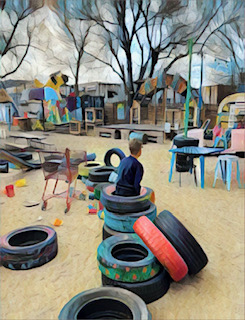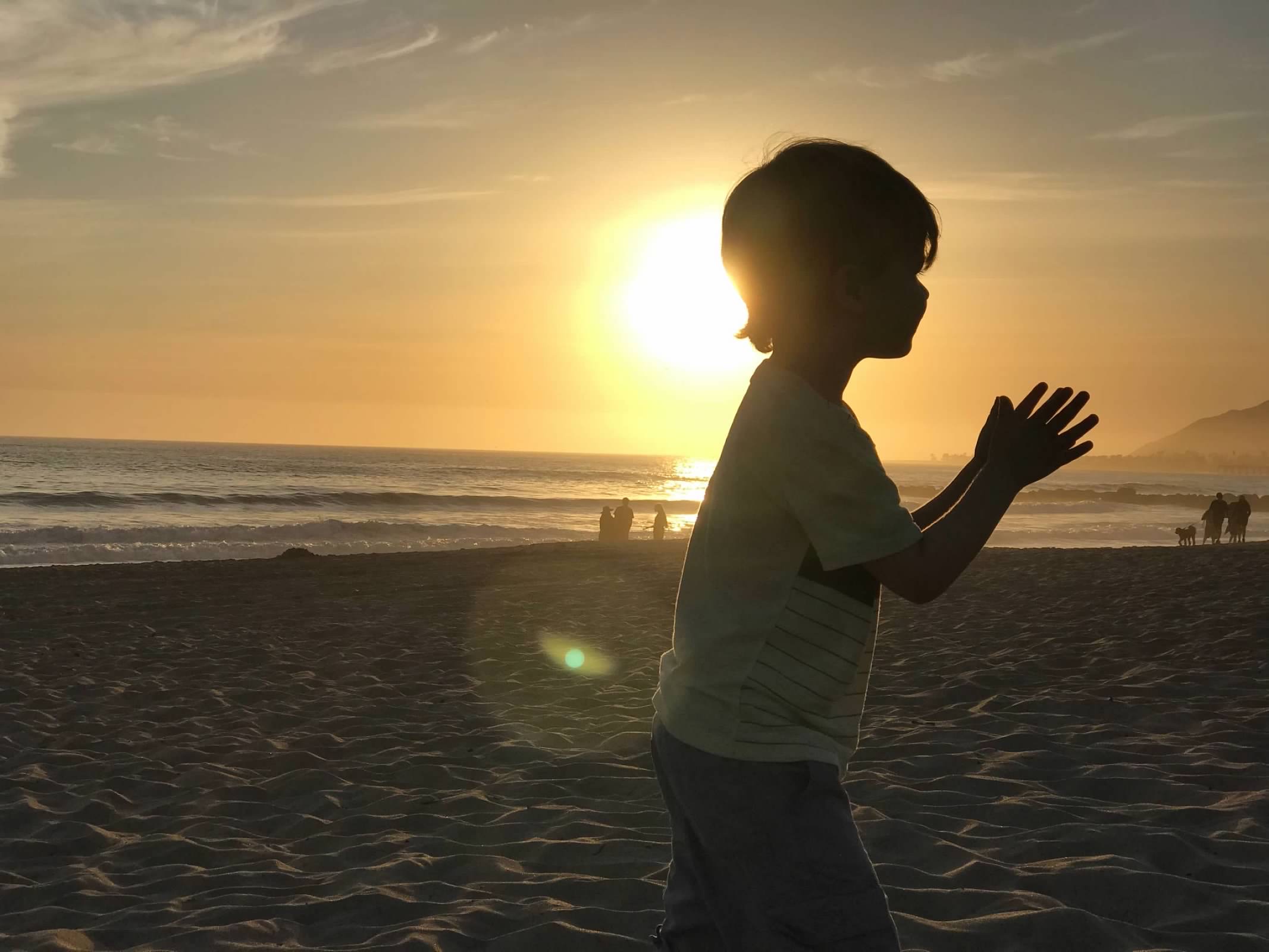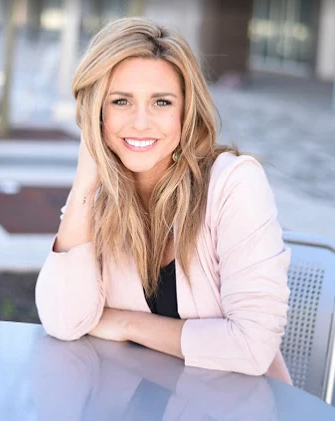What do kids learn when they play? Everything!
Early childhood expert, Sally Swiatek gives us the inside info on why unrestricted, self-directed play is essential to child development. Sally was the director of “A Little Patch of Earth” preschool in Southern California for many years. With degrees in both early childhood education and human development, Sally explains that play is the occupation of childhood. In Episode 6 of the “Screen Less Play More” podcast, Sally says that play is essential for building social skills, confidence, risk assessment, and empowerment. Whether it be a in a sandbox, a mud pit, a rope swing, or a garden, play teaches self-regulation, coordination, boundaries, and conflict resolution. Play improves sensory development, resilience, problem solving, and much more.
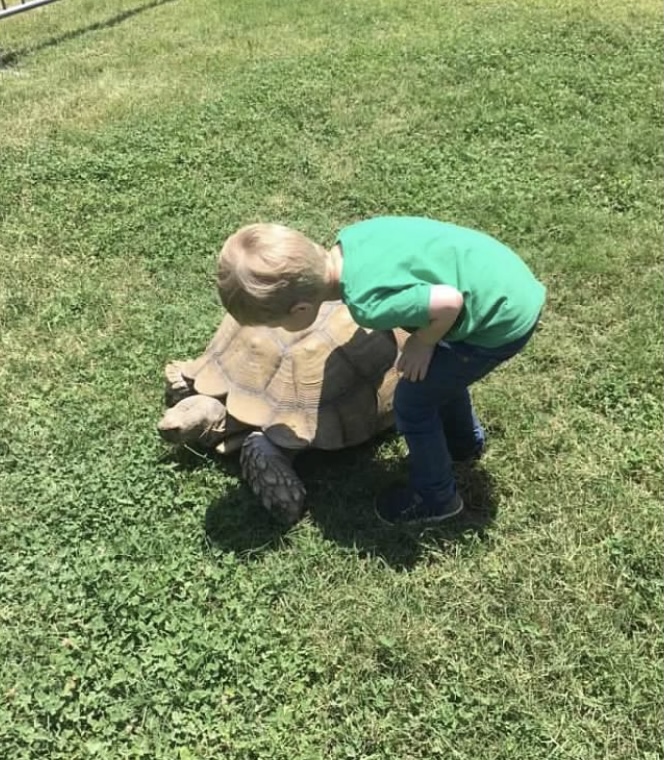
Play should involve some risk
What do kids learn when they play? Well, eventually how to be adults. Adults are constantly assessing the risk surrounding them, whether it be a dangerous highway, a slippery sidewalk, a toxic relationship, or an angry boss. Children need the opportunity to encounter challenging situations in order to learn how to assess risk and navigate it safely.
Through play with peers, children gain the experience to navigate if the tree is safe to climb, if rocks are appropriate to throw, and if they need to assert themselves in an unfair relationship. Sally explains, “The first thing is for children to listen to what their body is telling them. That is so important because now you think of a teenager who is at a party who feels the pressure from a peer to have an experience that maybe they’re not ready for. And if they can start to recognize in early childhood what that feels like, and how they get out of it, and how they can mind map how to get out of it. Then they’re going to have that skill in adolescence and adulthood and all of the encounters we’re going to have as humans later in life.”
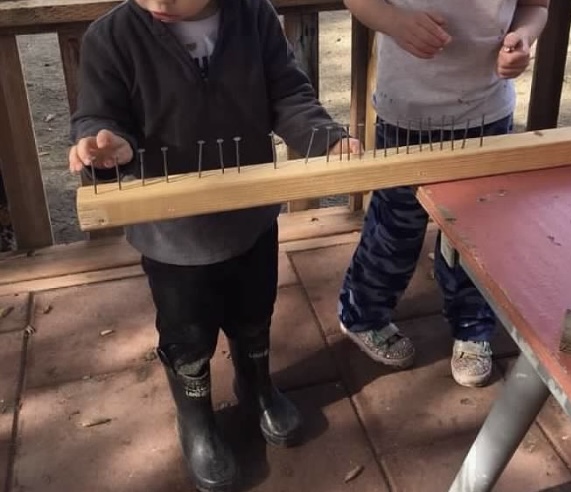
Risk is very important for young people because it’s important in the workforce and how we ready people for the world. It’s important for lifelong curiosity. And we have to provide the practice of developing confidence and risk judgment.
sally swiatek
Play helps children regulate
Sally explains how play can help teach children how to self-regulate and ready them for the future. ” At The Patch because it was so play-based, we knew that there was a lot of risk management that was happening. In order to manage the risk that was very important for children to experience, we had to have a lot of staff. And then when they go into kindergarten, there’s like one teacher, and maybe an aide to like 24 kids. So you can imagine if all of these kids are dysregulated, you’re really not ready to learn. You can’t sit down and process any information if you don’t have the skills of knowing how to manage your social dynamic. So that kind of regulation comes strictly through play. It builds purpose. It builds agency.”
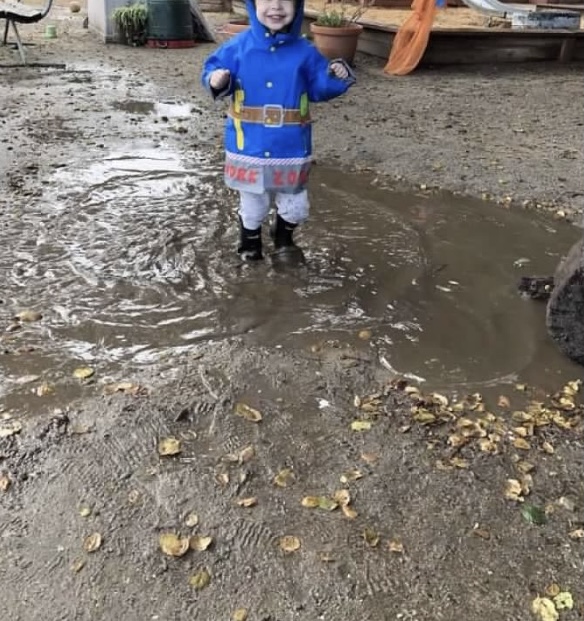
Play helps kids navigate relationships
Kids learn when they play how to navigate harsh words, hurt feelings, and angry outbursts. They get practice finding their voice, standing up for their rights, and exiting a situation when it is not comfortable or safe.
Sally laments, “Right now, we parent police so much that these kids are not building the resilience of knowing how to handle these kinds of relationships and those tender moments that come with all of our relationships.”
Play prepares kids for the future
Play is not just for fun, it prepares children for relationships, situations, and moreover, their future experience in school. Sally told our podcast, “I used to sit on the board of the California Kindergarten Association and we would ask teachers, ‘What is it that you really want children to be prepared for upon arrival in kindergarten?’ They did not want kids to be pre-readers, they did not want them to know 100 sight words or to count to 20 or to 100. What they wanted were that kids had a sense of identity and autonomy….that they knew how to help themselves.”
What do kids learn when they play? Tune-in to Episode 6 of Screen Less Play More podcast for many more amazing insights about the benefits of play from expert Sally Swaitek!
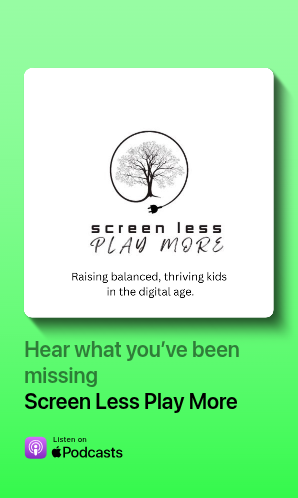
Thanks for visiting screenlessplaymore.com !
More resources!
If you’re new to play, here are some great games and ideas to start!
Tessa Stucky gave some amazing info in Episode 5 about how to help kids build resilience and regulation.
Find all of our podcast episodes here!

